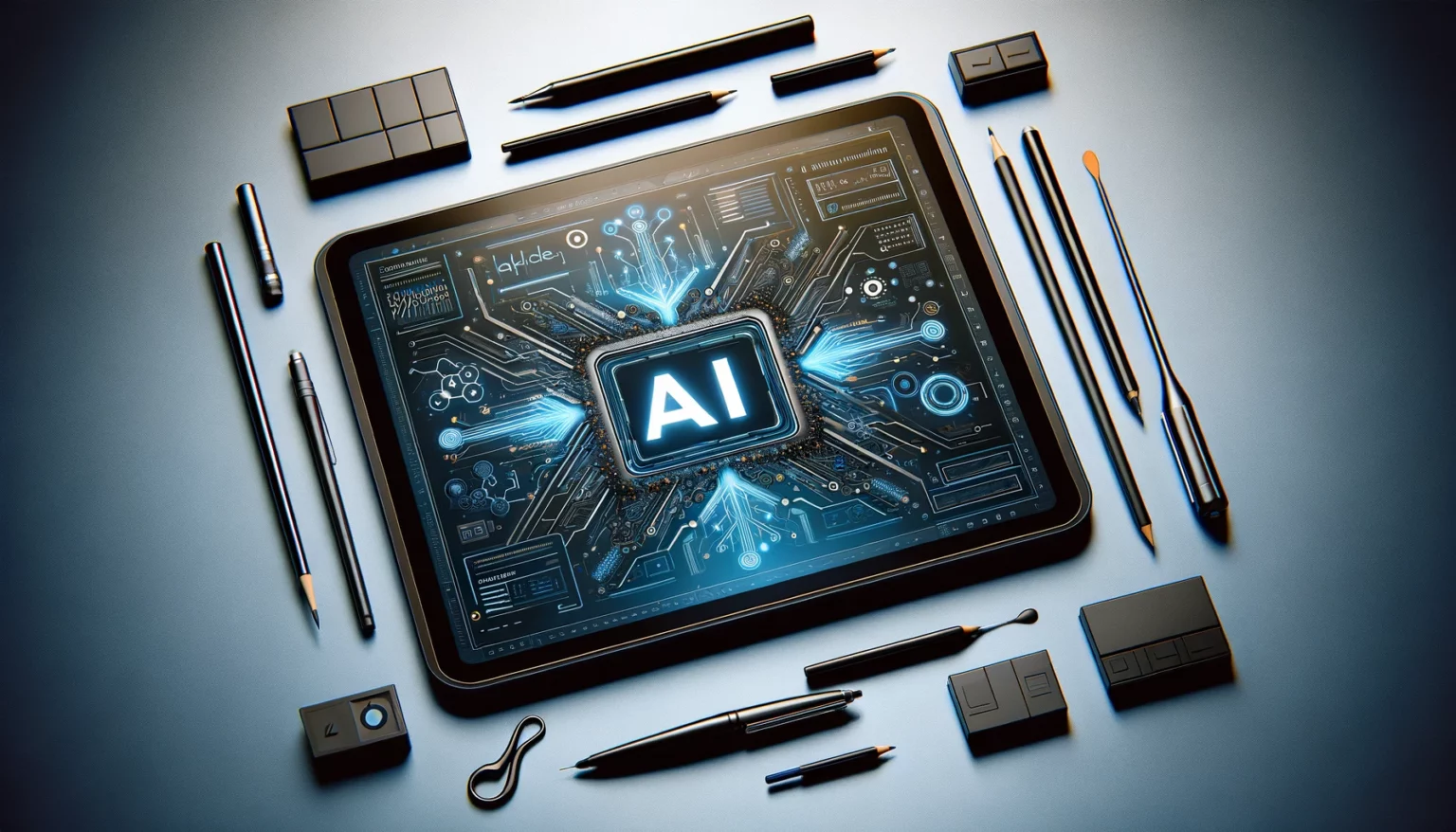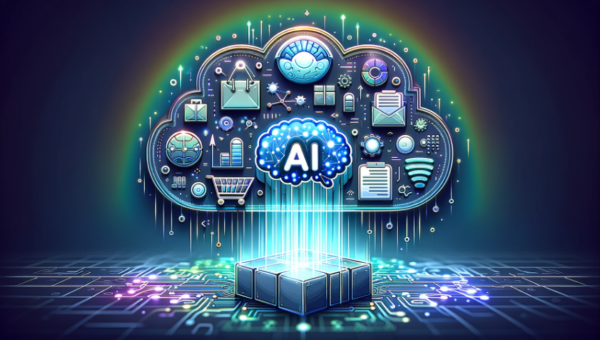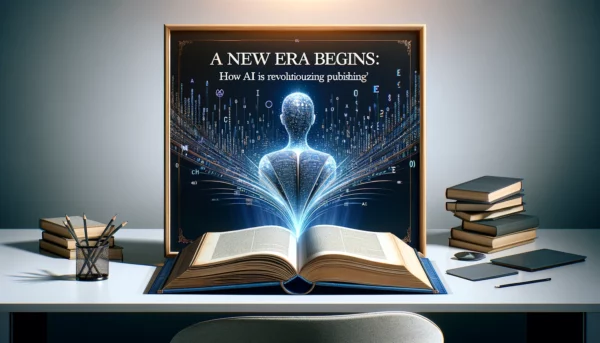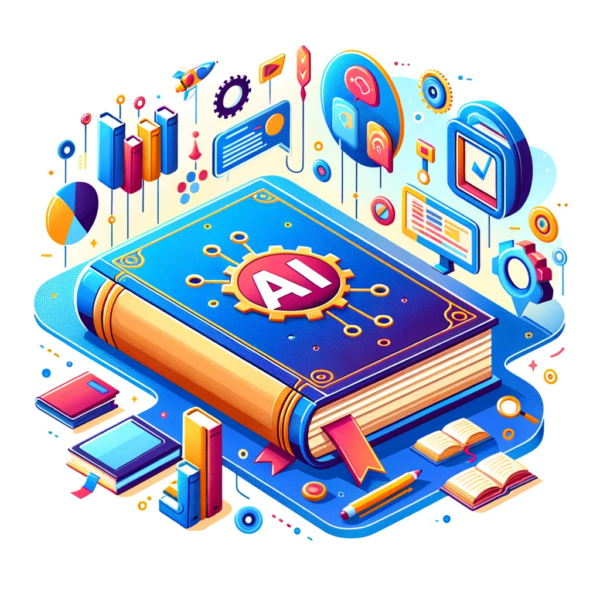The advent of AI content creation marks a revolutionary shift in how we produce, distribute, and consume content across various mediums. AI, with its advanced algorithms, machine learning capabilities, and natural language processing, has opened up new horizons in content creation.
These technologies enable machines to generate, edit, and curate content ranging from written articles to visual media with increasing sophistication and minimal human intervention. This paradigm shift has not only accelerated content production but also enhanced its quality and relevance.
The importance of AI content creation cannot be overstated. In an era dominated by digital media, the demand for fresh, relevant, and engaging content is ceaseless. AI aids in meeting this demand by enabling rapid content generation, ensuring consistency, and offering scalable solutions.
Its ability to analyze vast amounts of data allows for content that is not only created faster but is also more aligned with audience preferences and trends.
Current trends in AI content creation reflect a growing integration of AI tools in various sectors. In journalism, AI is used to write news articles and reports, especially for data-driven stories.
In marketing, it’s reshaping content strategy and execution, from automated email campaigns to AI-generated ad copy. The entertainment industry is experimenting with AI in scriptwriting and video game development, offering new storytelling dimensions.
Another notable trend is the rise of AI in generating personalized content. Whether it’s a news feed, a shopping recommendation, or a music playlist, AI systems are increasingly capable of curating content that aligns with individual user preferences, enhancing user engagement.
The rise of AI-generated visual content, such as images and videos, has also been significant. Tools capable of creating high-quality visual assets based on textual descriptions are revolutionizing graphic design, art, and video production, opening up new creative possibilities and democratizing content creation.
Moreover, from SEO to readability enhancements, AI tools are becoming indispensable for content creators aiming to increase their visibility and impact online.
Your Publishing Journey Awaits – Start NowAI Content Creation
AI content creation refers to the process of using artificial intelligence technologies to generate, modify, and enhance content across various formats including text, images, audio, and video.
This technology leverages machine learning algorithms, natural language processing (NLP), and data analytics to automate and refine the content creation process.
The scope of AI in content creation extends from simple tasks like auto-generating email responses and social media posts to complex tasks, like writing full-length articles and creating visual art.
Historical Development and Evolution
The historical development of AI content creation is a tale of continuous evolution and innovation. In its early stages, AI was primarily used for basic data analysis and pattern recognition.
The breakthrough came with the advent of advanced machine learning and NLP techniques, which allowed AI to understand and generate human-like text. Over the years, these capabilities have expanded significantly.
The introduction of models like GPT (Generative Pre-trained Transformer) and advancements in image and video generation algorithms have marked significant milestones in this journey.
Today, AI not only replicates human-like content creation but also offers new dimensions to creativity, surpassing the initial expectations set by its early applications.
Impact of AI on Traditional Content Creation Processes
The impact of AI on traditional content creation processes is profound and multifaceted. AI streamlines and accelerates content generation, allowing for the production of large volumes of content in a fraction of the time it would take humans.
It brings efficiency and cost-effectiveness to content production, especially for businesses and media outlets.
Moreover, AI’s analytical capabilities mean it can tailor content to audience preferences, enhancing engagement and effectiveness.
However, this shift also raises questions about the role of human creativity, with concerns about AI replacing human jobs in content creation fields.
Despite these concerns, many experts view AI as a tool that complements rather than replaces human creativity, augmenting the creative process rather than supplanting it.
AI-Generated Content
Content generated by AI showcases the versatility of AI in various media, demonstrating its expansive role in content creation. In the realm of text, AI algorithms, especially those rooted in natural language processing (NLP), excel at producing written material.
This includes a range of outputs from news articles, blog posts, social media updates, to creative fiction, highlighting AI’s swiftly advancing capabilities in text generation.
In the field of visual content, AI has made significant strides. Tools like DALL-E and DeepDream are at the forefront of generating complex and artistic images.
These tools can create visuals from scratch or based on specific prompts, revolutionizing digital art and graphic design.
The impact of AI extends to video production as well. It encompasses the generation of video clips, editing, and the creation of realistic deepfakes.
These advancements are particularly influential in areas such as filmmaking, advertising, and virtual reality, marking a new era in video content creation.
Audio content is another area where AI demonstrates its prowess. This includes the composition of music, synthesis of voices, and creation of sound effects.
Your Publishing Journey Awaits – Start NowBenefits and Challenges of AI Content Creation
Benefits:
- Efficiency and Speed: AI vastly speeds up the content creation process, enabling rapid production and distribution.
- Scalability: AI can generate large volumes of content, catering to various platforms and formats, a feat challenging to achieve manually.
- Personalization: AI algorithms can tailor content to individual preferences, enhancing user engagement and experience.
Challenges:
- Quality and Nuance: While AI is proficient in creating content, it may lack the nuanced understanding and emotional depth that human creators bring.
- Dependency and Skill Loss: Over-reliance on AI might lead to a decline in traditional content creation skills.
- Unpredictability and Control: Content generated by AI can sometimes produce unexpected or inappropriate results due to biases in the training data or algorithmic limitations.
Role of Natural Language Processing and Machine Learning
NLP and machine learning are the cornerstones of AI-generated content. NLP allows machines to understand, interpret, and generate human languages, making it essential for AI-generated text.
Machine learning, particularly deep learning, enables AI to learn from vast datasets, improving its content creation capabilities over time. These technologies are continuously evolving, enhancing the sophistication and accuracy of content generated by AI.
Ethical Considerations and Originality Concerns
AI-generated content brings with it a host of ethical considerations that warrant close examination.
Plagiarism and Originality Concerns
One primary concern is the issue of plagiarism and originality. As AI becomes more adept at replicating existing content, it raises questions about the uniqueness and originality of its creations.
This blurring of lines between AI-generated and human-created content calls for a reevaluation of what constitutes original work.
Misinformation Risks
Another significant concern is the potential for misinformation. AI’s capacity to generate realistic and convincing content can be exploited to disseminate false information.
This capability, if misused, poses a serious threat to the reliability of information, especially in sensitive areas like news and public discourse.
Intellectual Property Challenges
Intellectual property rights present another complex challenge in the realm of AI-generated content. Determining the ownership and copyright of content created by AI involves navigating uncharted legal territory, raising questions about the application of existing intellectual property laws to AI creations.
The Importance of Transparency
Lastly, the issue of transparency is critical, particularly in news and informational contexts. It’s vital for audiences to be aware when they are engaging with content that’s been generated by AI.
This transparency is essential to maintain trust and integrity in information dissemination and to ensure that audiences can make informed judgments about the content they consume.
Future Prospects of Content Created Using AI
The future of content generated by AI is poised for exponential growth. As AI technology advances, we can expect more sophisticated, nuanced, and creative outputs.
The integration of AI in content creation will likely become more seamless, with collaborative tools that merge human creativity with AI efficiency.
The challenge will be to harness these advancements responsibly, ensuring ethical use and maintaining a balance between AI-made and human-created content.
The potential for AI to democratize content creation is vast, opening doors for individuals and organizations to express themselves in new and innovative ways.
AI Content Creation Tools
- Writing Tools:
- GPT-3 (OpenAI): A powerful language processing AI capable of generating human-like text, useful for articles, scripts, and even poetry.
- Grammarly: Enhances writing quality by checking grammar, suggesting style improvements, and detecting plagiarism.
- Image Creation Tools:
- DALL-E (OpenAI): Generates creative and complex images from textual descriptions.
- DeepArt: Transforms photos into artworks mimicking the style of famous painters using deep learning algorithms.
- Audio and Video Content Creation Tools:
- Descript: Provides AI-driven audio editing and transcription services.
- Jukedeck: Uses AI to compose music and create soundtracks tailored to specific moods and genres.
- Synthesia: Creates videos from text, including realistic virtual avatars for various applications.
- RunwayML: Offers an easy-to-use platform for video editing and visual effects, leveraging AI for tasks like object removal and style transfer.
Detailed Analysis of Features, Capabilities, and Limitations
- Features and Capabilities:
- AI tools like GPT-3 and DALL-E offer unprecedented levels of creativity and efficiency, generating content that can adapt to various styles and formats.
- Audio tools like Descript simplify complex editing processes, enabling easy manipulation of audio files with AI-driven transcription features.
- Limitations:
- Dependence on data quality: AI tools are only as good as the data they are trained on, which can limit their effectiveness or introduce biases.
- Lack of emotional intelligence: Content generated using AI may lack the nuanced understanding and emotional depth of human-created content.
Comparison with Traditional Content Creation Tools
- Speed and Efficiency: AI-powered tools generally outperform traditional tools in terms of speed, automating tasks that would take humans much longer.
- Creativity and Flexibility: Traditional tools rely more on human creativity, while AI tools offer a range of automated options but may sometimes produce formulaic results.
- Customization: Traditional tools often require more specialized skills for customization, whereas AI tools offer more user-friendly interfaces with customizable templates and options.
How AI Technology are Reshaping Content Strategy and Marketing
AI technology are revolutionizing content creation by enabling personalization at scale, something that is exceedingly challenging to achieve manually.
These tools can tailor content to suit different segments of the target audience, ensuring that each piece resonates more effectively with its intended readers or viewers.
Additionally, writing tools powered by AI are transforming SEO and data-driven insights. They are capable of optimizing content for search engines more efficiently, leveraging data to enhance visibility and engagement.
This approach ensures that content not only reaches its intended audience but also maintains relevance and effectiveness.
Another significant advantage of AI in content creation is cost-effectiveness. The use of AI-powered tools reduces the need for large creative teams, allowing businesses to produce high-quality content without incurring substantial costs.
This efficiency is particularly beneficial for small to medium-sized enterprises that may have limited resources for content production.
Furthermore, AI excels in real-time content adaptation. With its ability to swiftly analyze current trends and user engagement, AI enables a dynamic and responsive content strategy.
This means that content can be adjusted in real time to align with changing trends, user preferences, or market dynamics, ensuring that it remains relevant and engaging.
This adaptability is crucial in the fast-paced digital landscape where audience preferences and trends can shift rapidly.
Your Publishing Journey Awaits – Start NowAI Writing Tools
AI-powered writing tools have revolutionized content creation in numerous domains:
- Blog Posts: Tools like GPT-3 and Jarvis assist in generating blog post ideas, creating drafts, and even writing entire articles based on given topics or keywords.
- Ad Copy: AI tools such as Copy.ai and Persado specialize in crafting compelling ad copy, optimizing language for engagement and conversion.
- Product Descriptions: Tools like Writesonic can rapidly generate unique and persuasive product descriptions for e-commerce websites, tailored to highlight key features and benefits.
How AI-powered Writing Tools Assist in Idea Generation, Keyword Research, and SEO
- Idea Generation: AI tools can analyze current trends, competitors’ content, and historical performance data to suggest relevant and engaging content ideas.
- Keyword Research: AI assists in identifying high-ranking keywords and phrases, integrating them naturally into the content to improve search engine rankings.
- SEO Optimization: These tools often include features to optimize content for SEO, ensuring it adheres to best practices and algorithms of search engines.
Comparison of AI Writing Tools with Traditional Content Writing Tools
- Speed and Volume: AI tools can generate content much faster than traditional methods, making it possible to produce larger volumes of content in a shorter time.
- Consistency and Accuracy: AI ensures consistency in tone and style across various content pieces. It also offers grammar and syntax checks, often surpassing basic word processors.
- Creativity and Depth: Traditional tools rely heavily on human creativity and experience, which can sometimes provide deeper insight and more nuanced content compared to AI-generated material.
Impact on Content Writers and the Writing Profession
The introduction of AI tools in content creation significantly enhances productivity by augmenting the capabilities of content writers.
These tools enable writers to produce more content efficiently, freeing them up to focus more on strategic and creative aspects of their work.
This efficiency is not just about quantity; it also enhances the quality of content, as writers can spend more time refining and strategizing their output.
This technological advancement has also led to a shift in the required skill set for content writers. They must possess the skills to effectively leverage these tools to enhance overall content strategy, making sure that the output aligns with the desired objectives and maintains a high standard.
Regarding the job market, there is a prevalent concern about AI potentially replacing human writers. However, the current trend suggests a more complementary relationship between AI and human writers.
In this emerging paradigm, AI handles routine and repetitive tasks, allowing human writers to concentrate on creative, complex, and strategic writing tasks.
Future Developments in AI Writing Technology
- Improved Contextual Understanding: Future AI writing tools are expected to have a better grasp of context and subtlety, producing content that is more nuanced and aligned with human emotions and cultural nuances.
- Voice and Style Customization: Advances will likely enable AI tools to mimic specific writing styles and voices, offering more personalized and brand-specific content creation.
- Integrated Content Strategy Planning: AI tools may evolve to not only assist in content creation but also in planning and strategizing content, analyzing performance, and offering insights for future content directions.
The Role of AI in Social Media Posts
The integration of AI in social media has transformed how content is created, managed, and optimized for user engagement.
AI technologies enable the analysis of vast amounts of user data, helping to understand audience preferences and behaviors. This insight allows for the creation of tailored content that resonates more effectively with users.
Additionally, AI-driven automation tools help in managing and scheduling posts, ensuring consistent and timely content delivery.
Tools for Generating and Scheduling Social Media Posts
- Content Creation Tools:
- Lately: Uses AI to automatically generate social media posts from long-form content like blogs or podcasts.
- ChatGPT (OpenAI): Assists in creating engaging and contextually relevant social media copy.
- Scheduling Tools:
- Buffer: Offers AI-driven insights for optimal posting times and content strategy.
- Hootsuite Insights: Leverages AI to analyze social media trends and audience engagement, helping in strategic content scheduling.
Analyzing AI’s Effectiveness in Engaging Target Audience on Social Media
AI tools can dissect large datasets to uncover trends and patterns in user engagement, allowing for more targeted content creation.
Sentiment analysis, a feature in many AI tools, helps in understanding the emotional tone of audience interactions, which can inform the tone and style of future posts.
AI-driven analytics provide real-time feedback on post performance, guiding content creators to refine their strategies for better engagement.
Enhancing Content Creation Process with AI
AI’s ability to automate routine and repetitive tasks in content creation is one of its most significant contributions.
AI tools can swiftly gather and analyze data relevant to content creation, such as audience preferences, trending topics, and keyword insights.
For textual content, AI can automatically generate drafts, summaries, and even perform basic editing tasks like grammar and spelling checks.
In visual content creation, AI can automate processes like image resizing, basic editing, and even generating visual elements based on textual descriptions.
AI’s Role in Project Management and Content Production
In project management and content production, AI can enhance efficiency and coordination. AI tools can help streamline workflows by automating task assignments based on team members’ skills and availability.
AI-enabled project management tools can track the progress of content creation projects, offering real-time updates and identifying bottlenecks.
Additionally, AI can assist in efficiently allocating resources, ensuring that time and effort are invested in the most impactful areas of content production.
Streamlining Content Strategy Using AI Tools
AI plays a crucial role in refining and streamlining content strategies:
- Target Audience Analysis: AI tools can analyze audience data to identify preferences and behaviors, helping to tailor content strategies to specific audience segments.
- Content Performance Analysis: By analyzing past content performance, AI can provide insights into what types of content are most effective, guiding future content creation.
- SEO Optimization: AI tools can optimize content for search engines, ensuring higher visibility and reach.
Challenges and Best Practices in Managing AI Tools in Content Workflows
Challenges:
- Over-reliance on AI: Relying too heavily on AI can lead to a lack of creativity and originality in content.
- Quality Control: Ensuring the quality of AI-generated content can be challenging, as AI may not always grasp the nuances of human language and sentiment.
- Ethical Considerations: The use of AI in content creation raises ethical questions, including concerns about data privacy and the potential for generating biased content.
Best Practices:
- Balance AI with Human Oversight: Combine AI efficiency with human creativity and judgment to ensure content quality and originality.
- Regularly Update and Train AI Tools: Keep AI tools updated with the latest data and trends to ensure their effectiveness.
- Ethical Use of AI: Be transparent about the use of AI in content creation and mindful of ethical considerations, particularly in terms of data usage and bias mitigation.
The Intersection of AI content creation and Human Creativity
The integration of AI in creative processes marks a significant shift, creating a unique blend of machine efficiency and human artistry. This amalgamation leverages the strengths of both AI and human creativity, resulting in a more dynamic and efficient creative process.
One of the key aspects of this integration is the utilization of AI for time-intensive tasks. AI can efficiently handle activities such as data analysis, initial content drafting, and basic editing. This approach frees human creators to focus their time and energy on the more creative and strategic elements of content creation.
Despite AI’s efficiency, human involvement remains crucial, particularly in the final stages of content creation. It is essential to ensure that the content is infused with creativity, cultural relevance, and emotional depth – aspects that AI currently cannot replicate.
Ethical Implications and Intellectual Property Concerns
The use of AI in content creation raises several ethical and legal questions:
- Authorship and Ownership: Determining the authorship of AI-generated content can be complex, leading to intellectual property concerns.
- Bias and Representation: AI algorithms can perpetuate biases present in their training data, potentially leading to ethical issues around representation and fairness.
- Transparency and Accountability: It is important to maintain transparency about the use of AI in content creation and establish clear guidelines for accountability.
Collaborative Efforts between AI and Human Content Creators
The future of content creation lies in collaborative models where AI and humans work in tandem:
- AI as a Creative Assistant: Envision AI as a tool that provides suggestions, generates prototypes, and automates routine tasks, while humans make final creative decisions.
- Interactive Feedback Loops: Develop systems where human feedback continuously refines and guides AI performance, ensuring that the output remains relevant and high-quality.
- Cross-Disciplinary Collaboration: Encourage collaboration between technologists, artists, and content creators to explore new forms of AI-assisted creativity.
Predictions about the Future Relationship between AI and Human Creativity
Looking ahead, the relationship between AI and human creativity is poised to evolve in several ways:
- Enhanced Creative Capabilities: AI will increasingly serve as a powerful tool that expands the boundaries of human creativity, enabling the creation of content that was previously unimaginable.
- Democratization of Content Creation: AI will make sophisticated content creation tools more accessible, democratizing the ability to produce high-quality content across various sectors.
- New Forms of Art and Expression: The future will likely see the emergence of new art forms and creative expressions born from the unique capabilities of AI, blended with human creativity.
Ethical and Regulatory Frameworks: As AI becomes more ingrained in content creation, there will be a greater emphasis on developing ethical guidelines and regulatory frameworks to govern its use.







